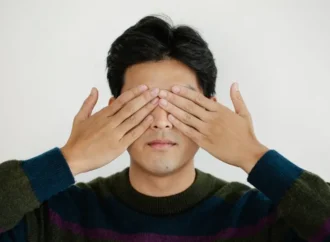A while back, I went out for a quick walk one night, not bothering to change the skirt I’d worn to a church service earlier in the evening. While out, I ran into an older neighbor and his wife. After a bit of cheerful small talk, the husband apologetically said, “I probably shouldn’t say this, but you look just beautiful.”
I was a bit surprised, but appreciated his kindly offered compliment, especially given their rarity in the aftermath of the “Me Too” movement. I’d talked with this couple numbers of times and never received such words … what was different? I couldn’t help but think it was the dress I was wearing, an outfit far different from the sporty clothes in which they normally saw me walking around the neighborhood.
A recent YouTube video I stumbled upon confirms these suspicions. The video featured a woman named Megan Thorpp explaining her year-long dress-wearing experience. Such a venture was not religiously oriented, she explained, but an experiment to see how it would affect her attitude in life.
To her great surprise, the experiment was life-changing, and the lessons she learned confirm that what we wear – particularly for females – affect not only our attitudes, but the attitudes of those around us.
Thorpp’s experiment seems to have begun when she realized that until recent decades, women in all cultures have generally worn some type of dress. “I dismissed it as maybe some sign of patriarchy,” Thorpp said, admitting to being a bit of a feminist in years past. But as she began wearing dresses, she realized that perhaps there were more mental and physical reasons for this long-held tradition, rather than the oppression of the patriarchy that many today automatically assume.
On the physical side of things, she discovered, dresses are just more comfortable and adaptable for the female body as it changes in shape and size over the course of each month due to hormonal fluctuations. Any woman who has worn a pair of jeans beautifully one week, only to have them be too loose or too tight the next can testify to this reality.
The loose, flowing, cool nature of a dress in summer is also something many women can attest to … but Thorpp discovered that dresses were also more comfortable in the winter months, as they make layering easy. To her surprise, jeans felt downright cold in the winter months after she had grown used to wearing a skirt regularly.
Beyond comfort, however, Thorpp found that dress-wearing gave her a different identity as a woman, simply because she felt more beautiful in a dress. “I was amazed at how being pretty made me feel different, made me move through the world differently, made me feel like I had more dignity in a way, and made me act with more dignity,” she says.
Although quick to note that beauty isn’t everything in life, she does note that it changes our attitudes and uplifts others around us. “Beauty is a gift I can give my family … and beauty helps people feel safe and secure. Beauty is order in chaos.”
But such beauty also impacts those beyond our immediate family, for as she discovered, wearing a dress while fulfilling the daily duties of life seemed to make others treat her with more respect. Just as I received a compliment from my neighbor while wearing a skirt, so Thorpp found that she received more compliments and even more help from others, particularly men, when wearing a dress. “Men have a lot of good traits that get unlocked by feminine beauty and feminine virtue and prettiness, where they have a desire to protect and serve,” she said. “I think that’s kind of like their chivalry comes out.”
Admittedly, it might be easy to dismiss Thorpp’s comments and experiment as just another internet influencer trying to get clicks by doing something unique and different. Yet I find it interesting that her experiment and the lessons she learned echo that of a woman who lived long before the age of the internet. That woman’s name was Tasha Tudor, and she was known for creating gentle and genuine beauty through her famous illustrations in children’s books.
Toward the end of her life, Tudor made similar observations about feminine beauty, it’s difference from masculinity, and the benefits which dress-wearing women discover:
Why do women want to dress like men when they’re fortunate enough to be women? Why lose our femininity, which is one of our greatest charms? We get much more accomplished by being charming than we would by flaunting around in pants and smoking. I’m very fond of men. I think they’re wonderful creatures. I love them dearly. But I don’t want to look like one.
When women gave up their long skirts, they made a grave error. Things half seen are so much more mysterious and delightful. Remember the term ‘a neatly turned ankle’? Think of the thrill that gentlemen used to get if they caught even a glimpse of one. Now women go around in their union suits. And what a multitude of sins you could cover up with a long skirt if you had piano legs.
Many of us are looking for ways in which we can restore goodness and beauty to our society, and often in that quest we look for big, bold ways in which we can act and impact others.
But what if such restoration is as simple as adding beauty to the lives of those around us by what we wear? Ladies, if something as simple as putting on a pretty dress for a day of average work could improve your attitude and make others step up to more responsibility and kindness, would you do it?
—
This article was made possible by The Fred & Rheta Skelton Center for Cultural Renewal.
Image Credit: PickPik
2 comments















2 Comments
Amanda
November 21, 2025, 10:19 amSo your value as a woman is in your appearance and beauty? Hmm, noted. 👌
🤦🏼♀️
REPLYEliane
November 21, 2025, 8:18 pmYou know, I have observed all the things you wrote about and know they are true. I've been pondering on this for years now and have heard pastors (non-Pentecostal) talk about how good it would be if more women wore dresses and how this could contribute to their individual worlds today. It is true: knit or corduroy skirts and dresses keep us warmer in the winter than pants. I'll put this in practice this week; and let's see. Thank you for this wonderful article! God bless.
REPLY